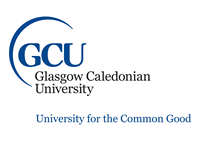Dr N McHugh, Prof Rachel Baker
No more applications being accepted
Competition Funded PhD Project (Students Worldwide)
About the Project
(Universal or Citizen’s) Basic Income (BI) involves a regular, unconditional cash payment to all individuals’ in society. The idea is not new, with experiments having been conducted in Canada and discussed, in the form of a negative income tax, in the USA in the 1960-70s (Forget, 2011, 2013; Friedman, 1962). Having fallen off the policy agenda this idea has gained new life following well-publicised new pilots in Finland and the Netherlands, a recent referendum on the issue in Switzerland and an abandoned pilot in Ontario, Canada following political interference (BBC, 2016; Carnegie Trust UK, 2019). BI has also gained policy traction in Scotland, with a feasibility study, supported by the Scottish Government, currently underway to explore the possibility of undertaking a BI pilot in four local authorities - Fife Council, City of Edinburgh Council, Glasgow, City Council and North Ayrshire Council (Carnegie Trust UK, 2019).
The introduction of a pilot in Scotland faces many issues, not least the fact that social security is a reserved issue and as BI will interact with welfare benefits the Westminster Government would have to approve any proposed pilot. Thus if BI is to be introduced in Scotland it will require public support to maintain it on the political agenda and to help foster policymaking across Scottish and Westminster Governments. However, it is unclear what the general public’s views are on BI and whether there is agreement between their views and those stakeholders involved in the policymaking process around BI. Similarly, while BI is generally accepted as being underpinned by certain principles - unconditional, universal, payments made periodically to individuals that help to cover basic needs (BIEN, 2019; RSA, 2018) - there is lack of agreement about how BI would be delivered in practice: What is the payment size? How is it funded? How does the payment size vary by age? How does BI interact with the social security system?
The aim of this PhD is to explore societal perspectives and preferences around BI. Using Q methodology and stated preference techniques this will focus on:
• Exploring shared societal perspectives on BI
• Examining public preferences for different types of BI
Closing date for applications is Friday 7th June 2019.
References
BIEN (2019), About Basic Income. Basic Income Earth Network. https://basicincome.org/basic-income/
BBC (2016), Switzerland's voters reject basic income plan, BBC News
Carnegie Trust UK (2019), Exploring the practicalities of a basic income pilot, Carnegie Trust UK.
Forget, E. L. (2011), The Town with No Poverty: The Health Effects of a Canadian Guaranteed Annual Income Field Experiment, Canadian Public Policy, xxxvii, 3, 283-305
Forget, E. L. (2013), New questions, new data, old interventions: The health effects of a guaranteed annual income, Preventive Medicine, 57, 925-928
Friedman, M. (1962), Capitalism and Freedom, The University of Chicago Press
RSA (2018), “Realising Basic Income Experiments in the UK.” Royal Society for the encouragement of Arts, Manufactures and Commerce. https://www.thersa.org/globalassets/pdfs/reports/realising-basic-income.pdf

 Continue with Facebook
Continue with Facebook

